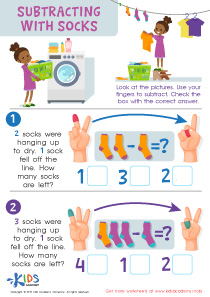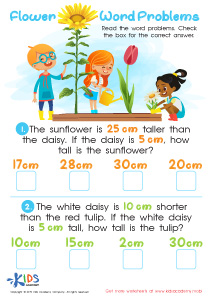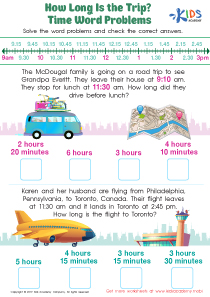Critical Thinking Addition and Subtraction Word Problems Worksheets for Ages 3-5
5 filtered results
-
From - To
Unlock your preschooler's potential with our "Critical Thinking Addition and Subtraction Word Problems Worksheets for Ages 3-5." Designed to spark curiosity and enhance problem-solving skills, these engaging worksheets challenge young minds to think critically. Children will explore relatable scenarios, apply basic math concepts, and practice reading comprehension, all while building a strong foundation in addition and subtraction. Perfect for home or classroom use, these fun, colorful worksheets make learning an adventure. Equip your little learners with the skills they need to excel and make math an enjoyable experience with these expertly-crafted resources!


Tricky Problems Worksheet: Part 1
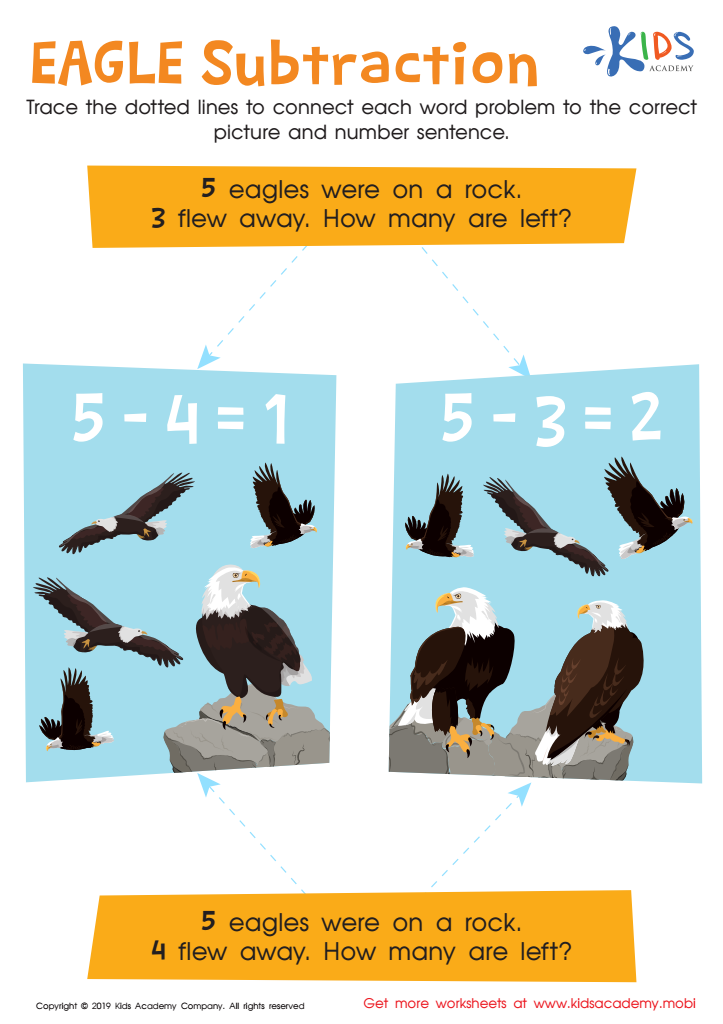

Eagle Subtraction Worksheet
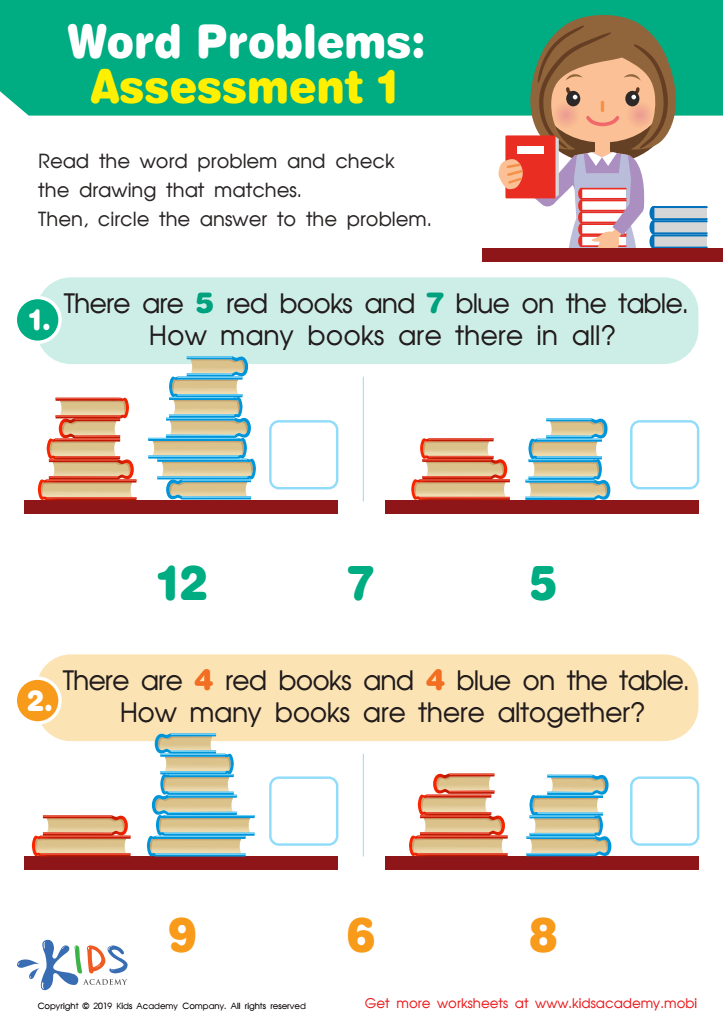

Word Problems: Assessment 1 Worksheet


Word Problems: Assessment 2 Worksheet
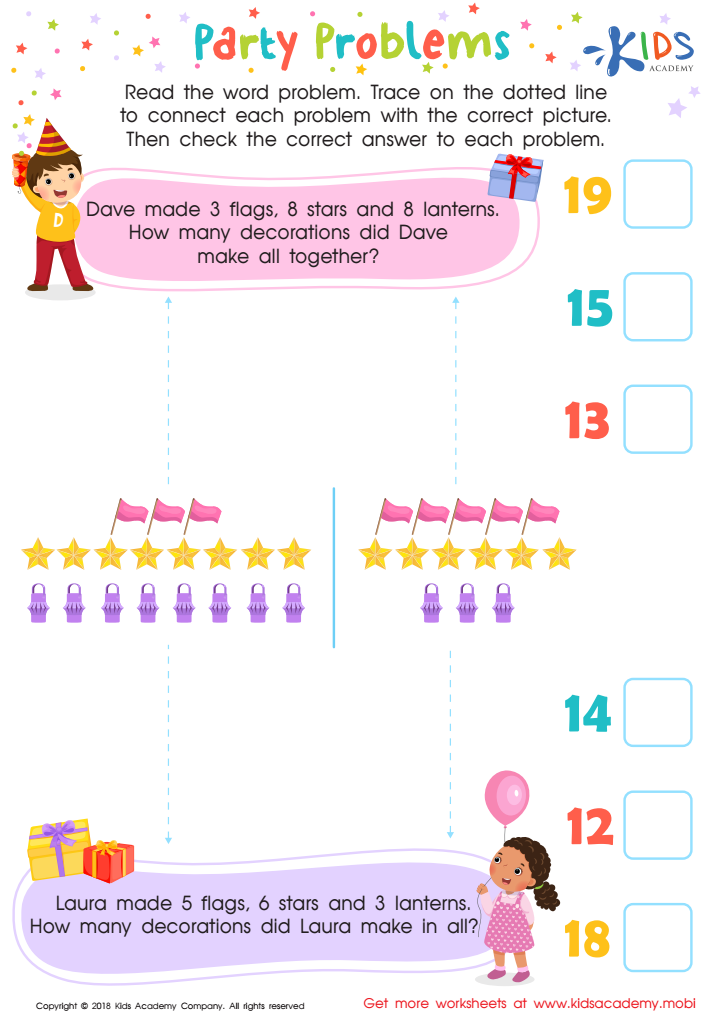

Party Problems Worksheet
At ages 3-5, children are in a crucial phase of brain development, making early education immensely impactful. Introducing critical thinking to addition and subtraction word problems at this stage lays a solid foundation for cognitive and mathematical skills. For parents and teachers, integrating these problems offers myriad benefits.
Firstly, mathematics isn't just about numbers; it's a language that describes the world. By working through word problems, children learn to translate real-life scenarios into mathematical expressions. This fosters practical problem-solving skills and boosts their ability to analyze situations critically.
Moreover, critical thinking encourages children to understand why a solution works, not just how to reach it. This type of reasoning remains vital throughout their education and into their adult life. Creative problem construction and diverse solutions show that problems can have multiple outcomes and interpretations, promoting flexible thinking.
Additionally, word problems enrich vocabulary, which helps improve language skills, comprehension, and ability to communicate solutions effectively. When parents and teachers emphasize and guide children through such experiences, they empower them with confidence in both mathematical reasoning and broader cognitive abilities. Cultivating these skills early on sets children on a path toward becoming thoughtful, adept problem-solvers, ready for future challenges.
 Assign to My Students
Assign to My Students












